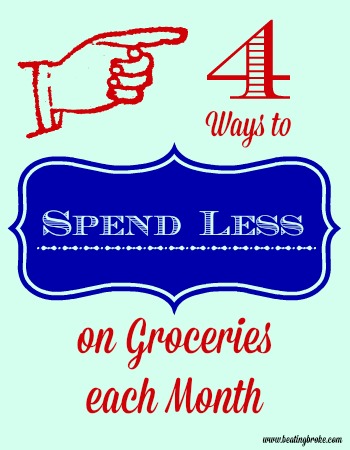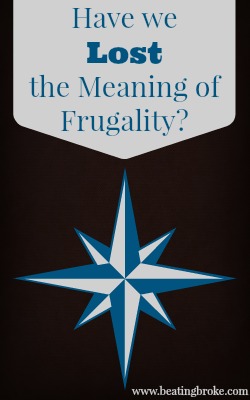Are you familiar with the USDA food plans? These plans state how much food should cost a family each month based on four categories: thrifty, low-cost, moderate and liberal. The plans are updated each month to accommodate food price increases. You determine how much your family should spend by choosing one of the four plans, and choosing the ages and members of your family.
For instance, according to the most recent USDA food plan, my family of five (2 adults and 3 kids ages 4 to 10), we should be spending approximately $176.60 a week on the thrifty plan up to $348.90 on the liberal plan. (Am I the only one saying “WOW!” to the liberal plan?)
Recently, I voluntarily decided to cut back on my freelance workload so that I could spend more time homeschooling my kids. We decided to tighten our belt and live off my husband’s income alone while banking the money I’m making.
We’ve been thrilled to spend under the USDA thrifty plan every week, usually by $40 or $50 a week, even though we cannot have gluten, dairy or corn. Here’s how we’ve been doing it:

I also found organic potatoes 5 pounds for $2, so I bought 40 pounds. Same for cabbage at 33 cents a pound. I bought 6 heads.
Inevitably, there are weeks where there are no good sales, so we eat from the pantry. This week is one of those weeks, so we will be eating a lot of meals with cabbage and potatoes.
Make your menu plan based on the items that are on sale. I’ve always made a menu plan. (If you don’t, start now! It’s such a money saver.) However, I made my menu plan first and then went shopping. Now, I do the opposite. I find out what is on sale, and I make my menu plan based on those items.
Make freezer meals based on low cost items. When I have extra time or extra groceries, I make freezer meals. Then, if there’s a week where we’ve run out of grocery money or there’s nothing good on sale, I have at least a week’s worth of meals in the freezer.
Be disciplined when going to big box stores. I love shopping at Costco, but I’m very careful to only buy what is on my list. I can get organic carrots 10 pounds for $6.99. I can buy a 2 pound bag of organic greens for less than $5. These prices can’t be beat! However, if I stray from my list and spend on impulse buys, I’m not saving any money.
What USDA plan is your weekly grocery spending closest to? What other tips do you have to save money on groceries?
Melissa is a writer and virtual assistant. She earned her Master’s from Southern Illinois University, and her Bachelor’s in English from the University of Michigan. When she’s not working, you can find her homeschooling her kids, reading a good book, or cooking. She resides in New York, where she loves the natural beauty of the area.


